Jane Bass, Archivist
D/DU 2318/33
Are you hoping to slip away for a short break this Easter?
Our Document of the Month for April is an account of a four-day trip to Paris over Easter 1908 written by Albert Samuel Lugg (1883-1943), a solicitor of Great Baddow.
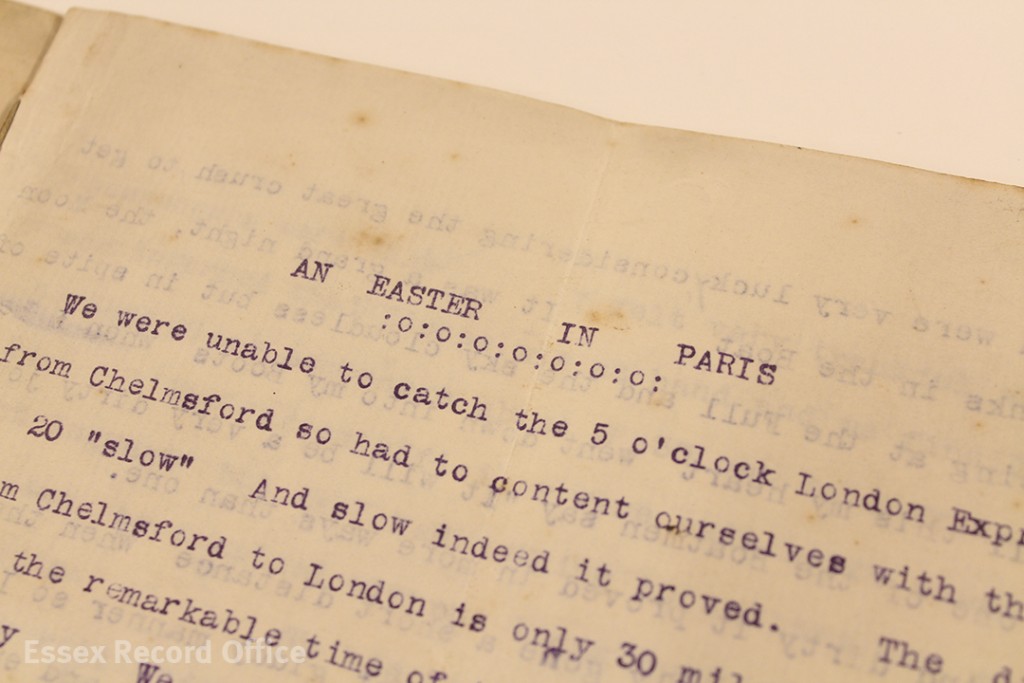
Lugg describes his journey in detail, beginning with the train from Chelmsford to London, which took two hours to cover the distance of 30 miles (Lugg, like many modern travellers, was not impressed).
The boat trip from Newhaven in East Sussex to Dieppe on the Normandy coast was a very rough passage and Lugg describes being nearly thrown to the floor of the boat and not feeling ‘at all well’ during the crossing.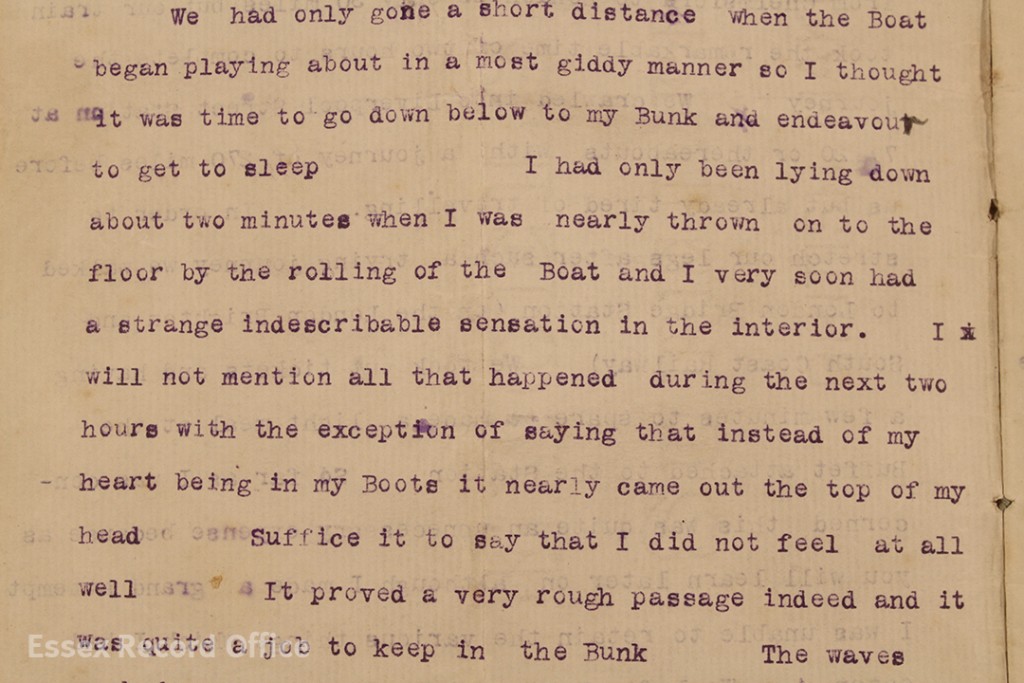
Hopefully he felt his journey had all been worth it when he arrived in Paris. Like any sightseer today, Lugg visited many of the famous sites and monuments in Paris, including the Cathedral of Notre Dame, the Palace de Versailles, the Louvre, and buildings erected especially for the Paris Exhibition of 1900.
He visited the Cathedral of Notre Dame on Good Friday, and his account of his trip describes what he calls ‘a very strange ceremony’ of kissing sacred relics at the altar rail. In other parts of the church boys dressed in white sat at tables on which was laid a crucifix; visitors could kiss the crucifix and make a donation.
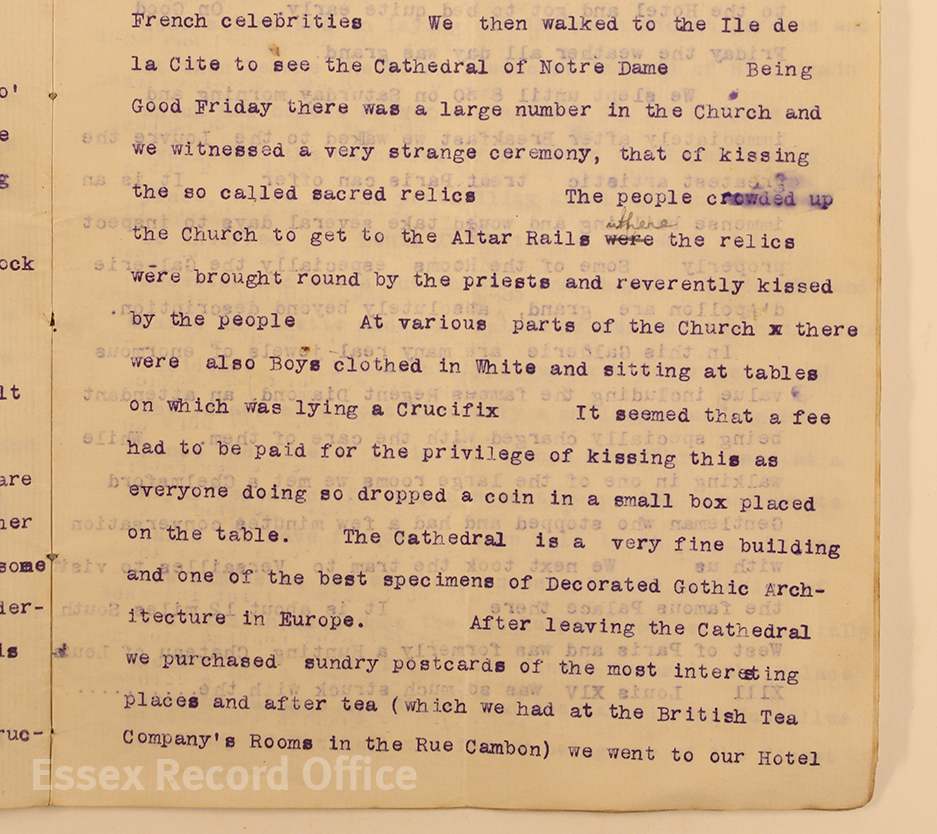
Albert also describes seeing the Pantheon and was shown over the vaults and saw the ‘graves of a good many French celebrities’.

Lugg was especially impressed with the Eiffel Tower. He and his companion saw it on their first day and returned on their last day when the ascended to the top – an experience Lugg wrote he would ‘never forget … The view from the top is absolutely beyond description’.
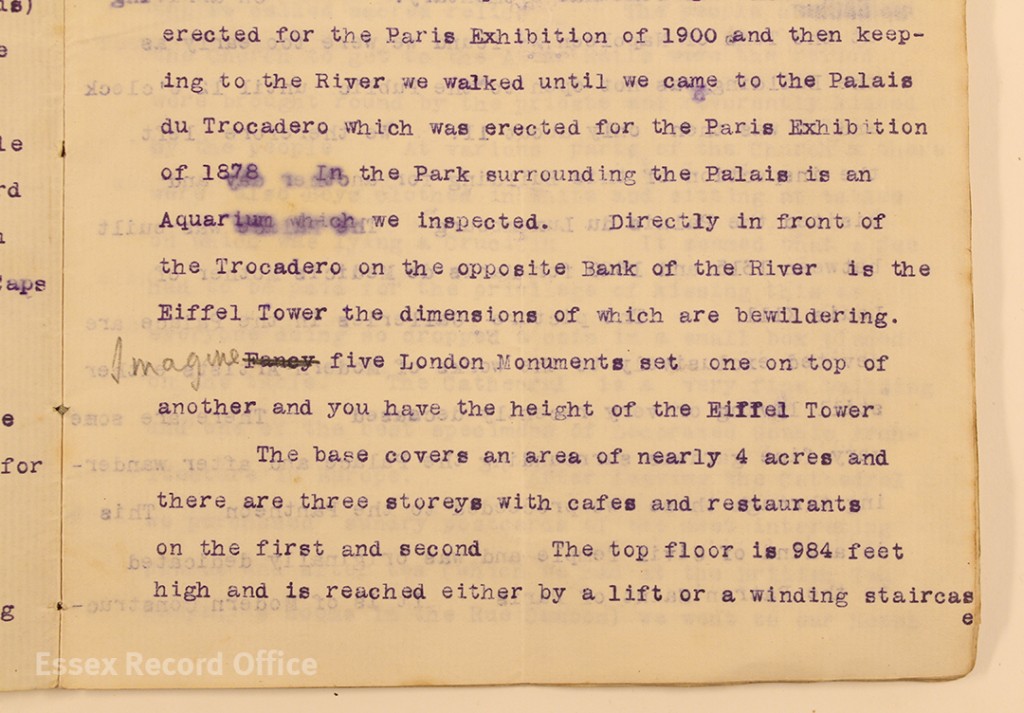
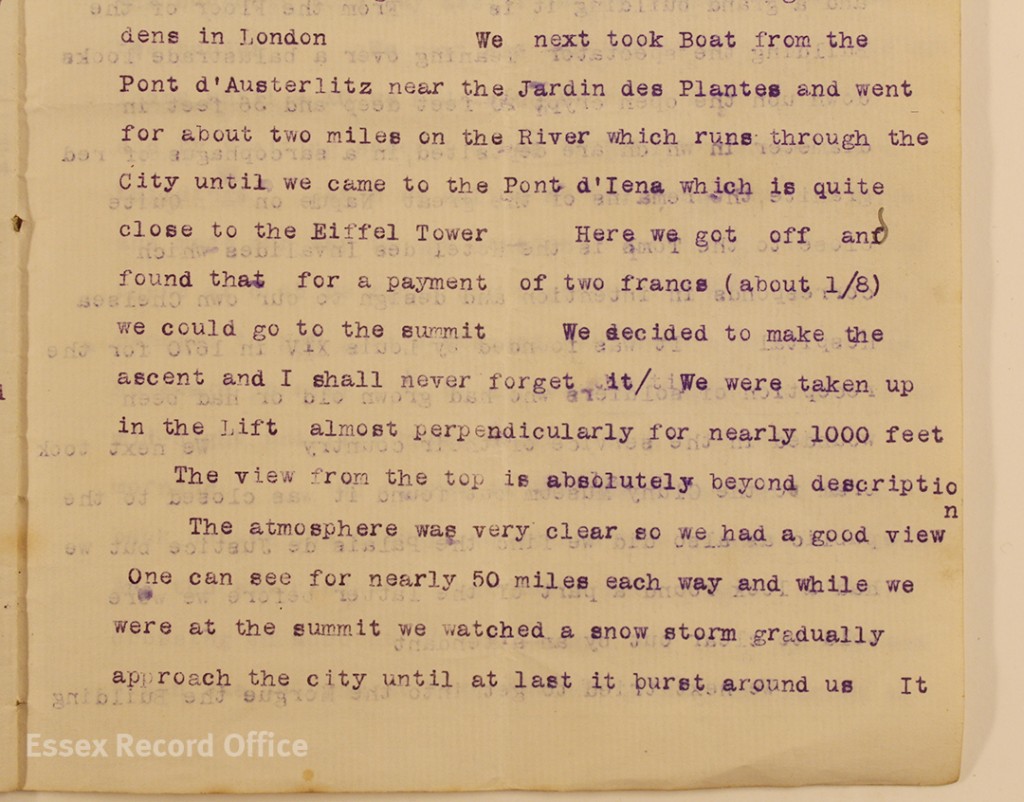
Just as now, traffic was a feature of city life, with Lugg writing that pedestrians had to be careful not to be knocked down when crossing roads due to the ‘thousands’ of motor cars on the streets.
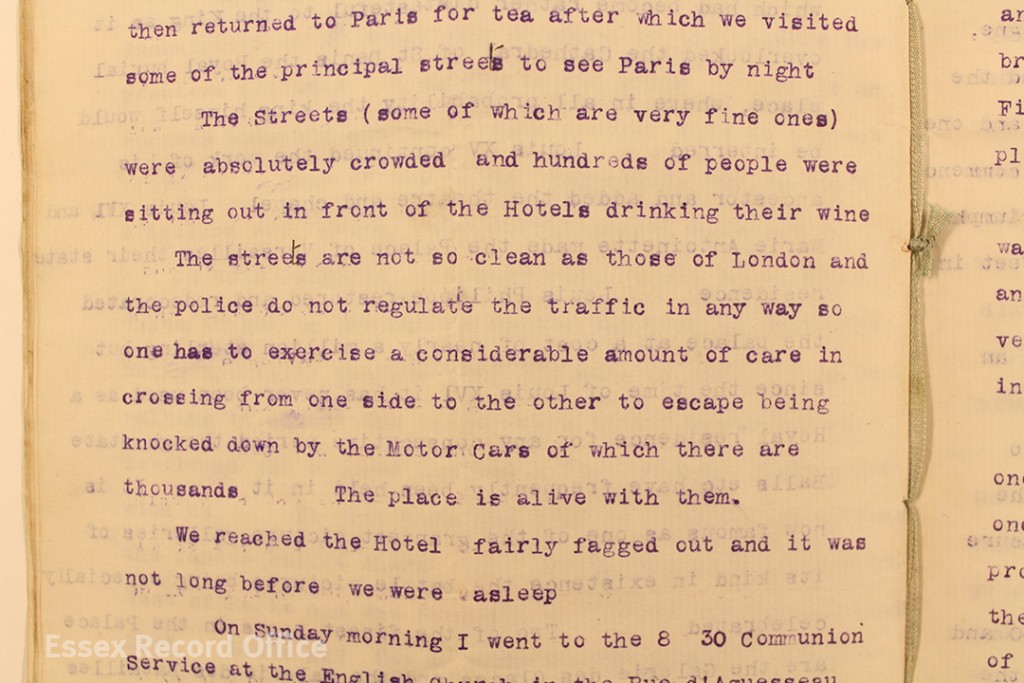
On their last day, Lugg and his companion had intended to rise at 6am to visit the market to see the ‘barrels of snails and thousands of frogs’ which could be purchased. Having packed so much in to their trip, however, they must have been rather worn out, Lugg writing that ‘our beds had a very restraining effect upon us’.
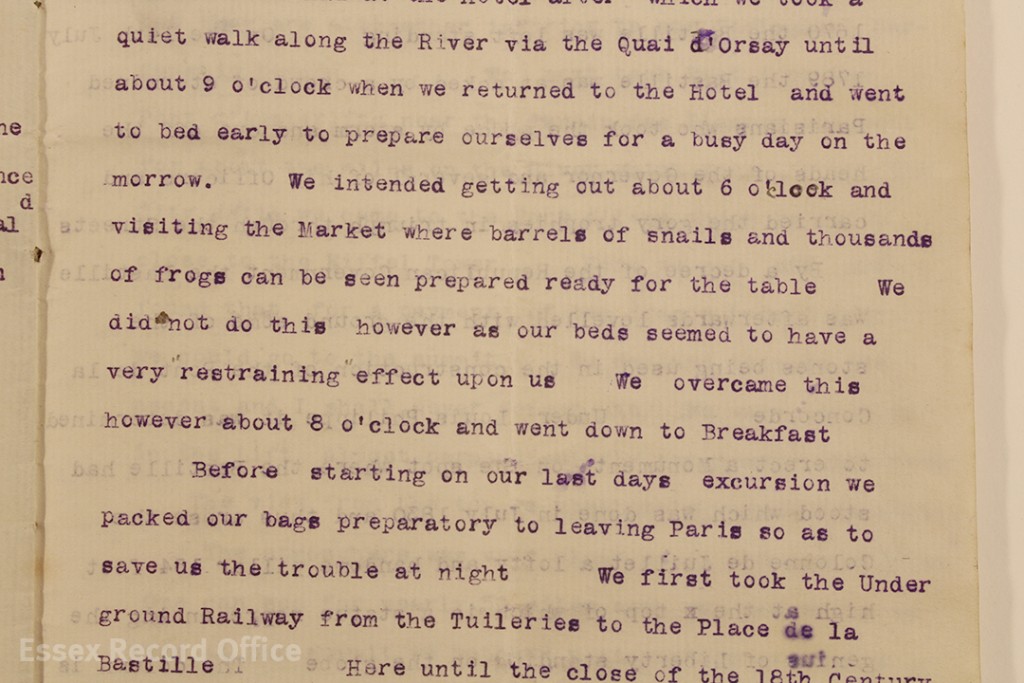
Six years after Lugg’s 1908 trip to Paris, the city was not far from the front lines of the First World War, being bombarded by German aircraft and artillery. The citizens endured shortages, rationing, and influenza.
Albert Lugg’s account of his holiday will be on display in the Searchroom throughout April 2017.
